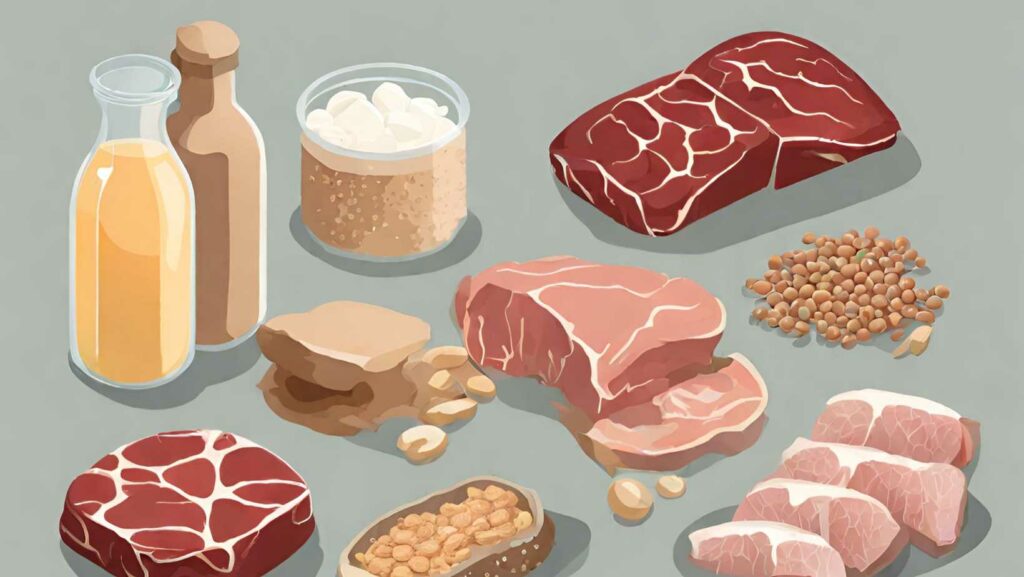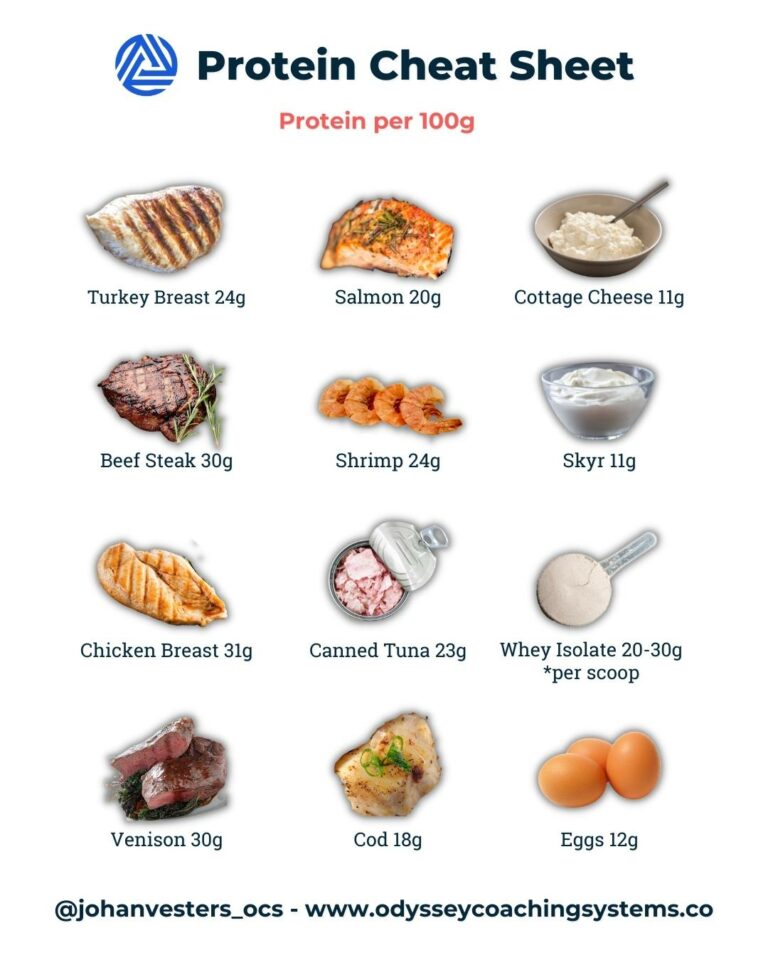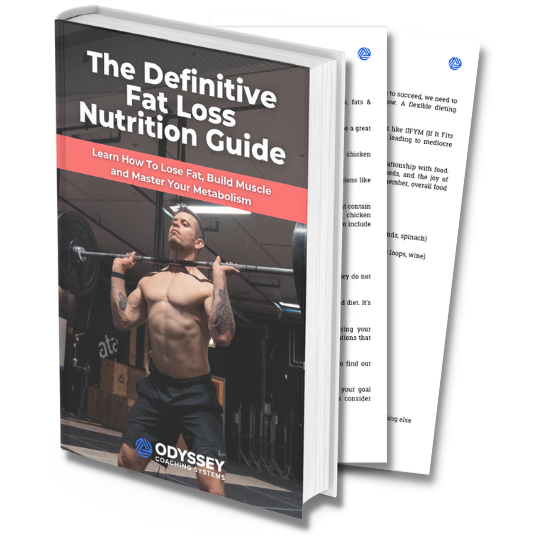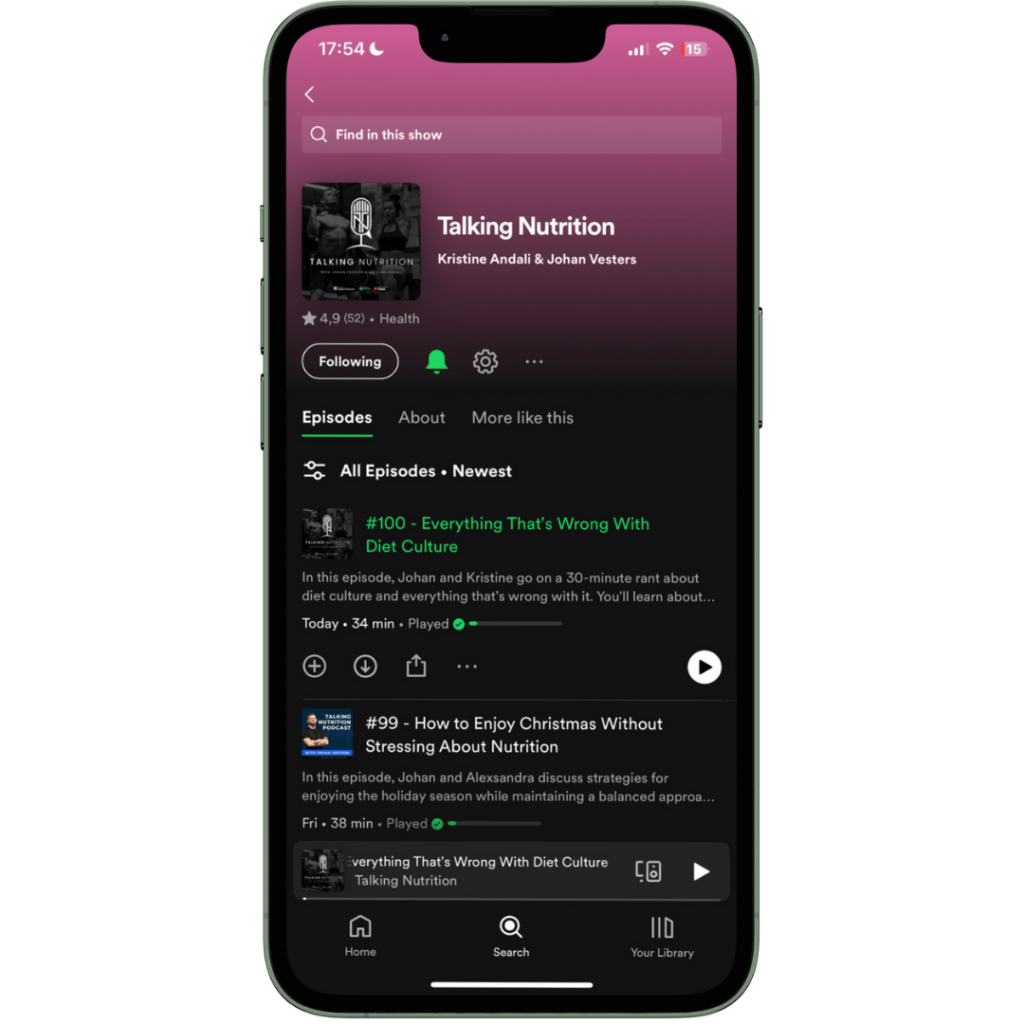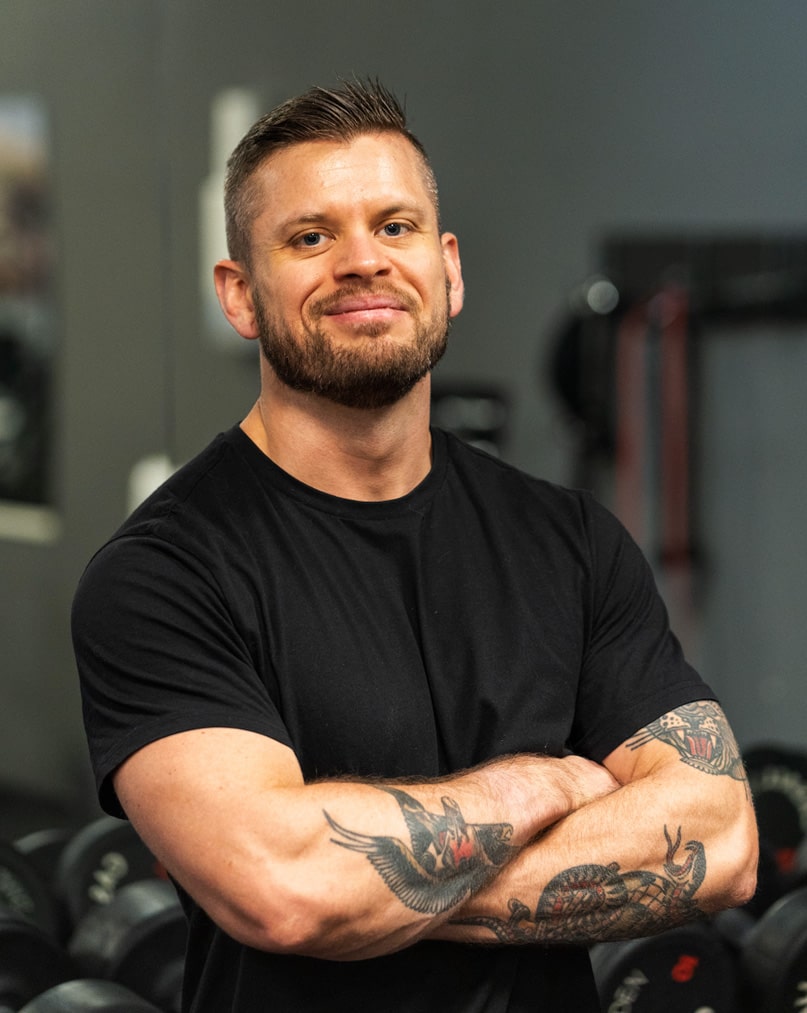Struggling to hit your protein?
Not sure what high protein foods to eat for fat loss and muscle gain?
‘The Definitive Protein Cheat Sheet’ – the most detailed and inclusive list of protein sources on the internet – will help you out!
Instead of the typical foods you see in any “top 10 protein foods” social media post, you get to explore ALL the options.
Today we’ll go beyond how much protein a food has per 100g.
First, you get to explore the Protein Cheat Sheet without interruption. Because I know you want to dive right in.
Don’t you leave right after checking out the cheat sheet though, because there are some specific steps to follow towards the end of this article 😉
This stuff will only help you actually hit your proteins in real life if you APPLY what you’re about to learn. Promise me to pay attention and stick around, it’s only a 5-minute read.
Below you’ll also learn why protein is important, how much protein you need per day, and what it takes for a food to be considered ‘high protein’.
And lastly, you’ll get specific criteria to base your food choices on, and a step-by-step plan for SMASHING your protein target every single day.
- Before you jump in, don’t forget to grab your FREE copy of my all-inclusive fat loss nutrition guide (click here). Protein is a start and one of the most important things to cover. But to take your nutrition to the next level, you’ll have to learn more. This e-book teaches you everything you need to know to create results. Go ahead and grab it here.
Now, let’s talk protein…
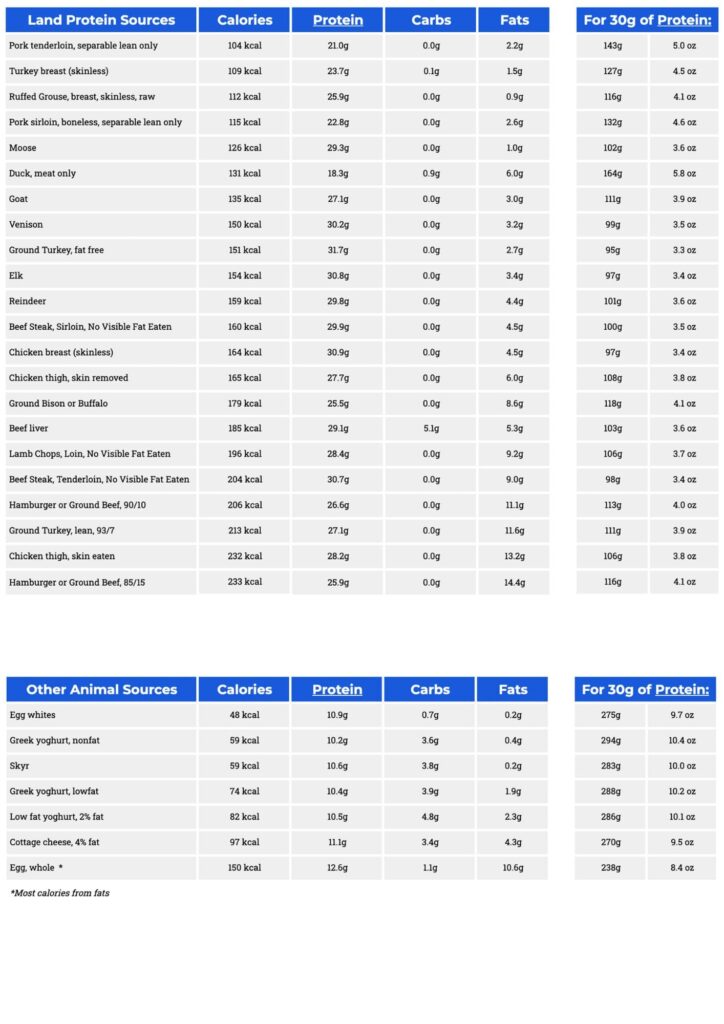
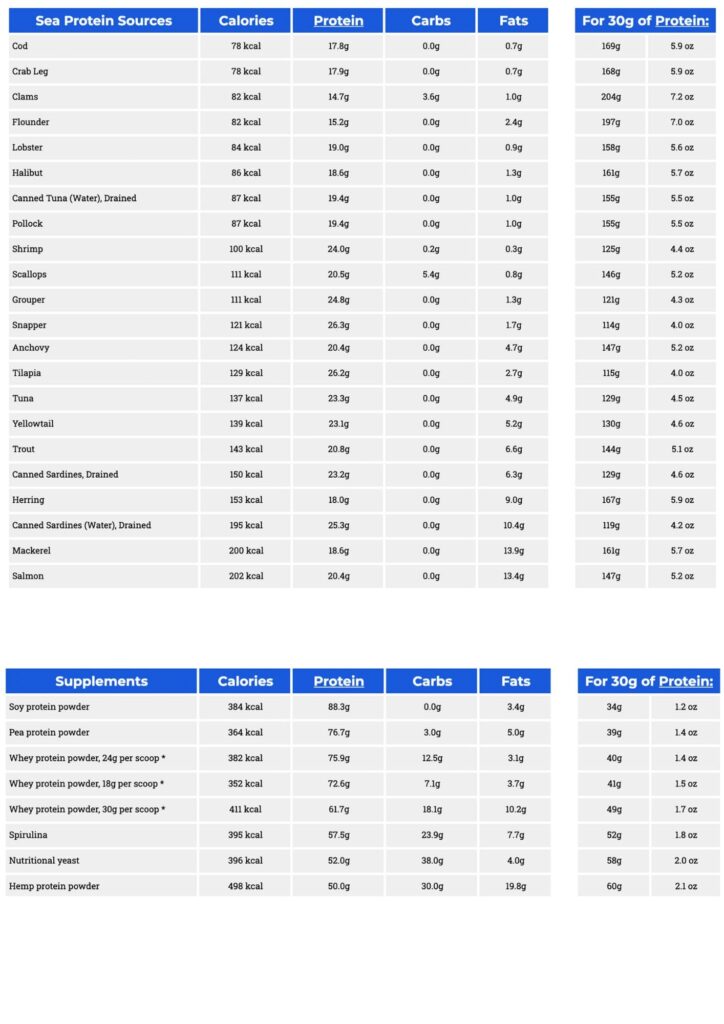
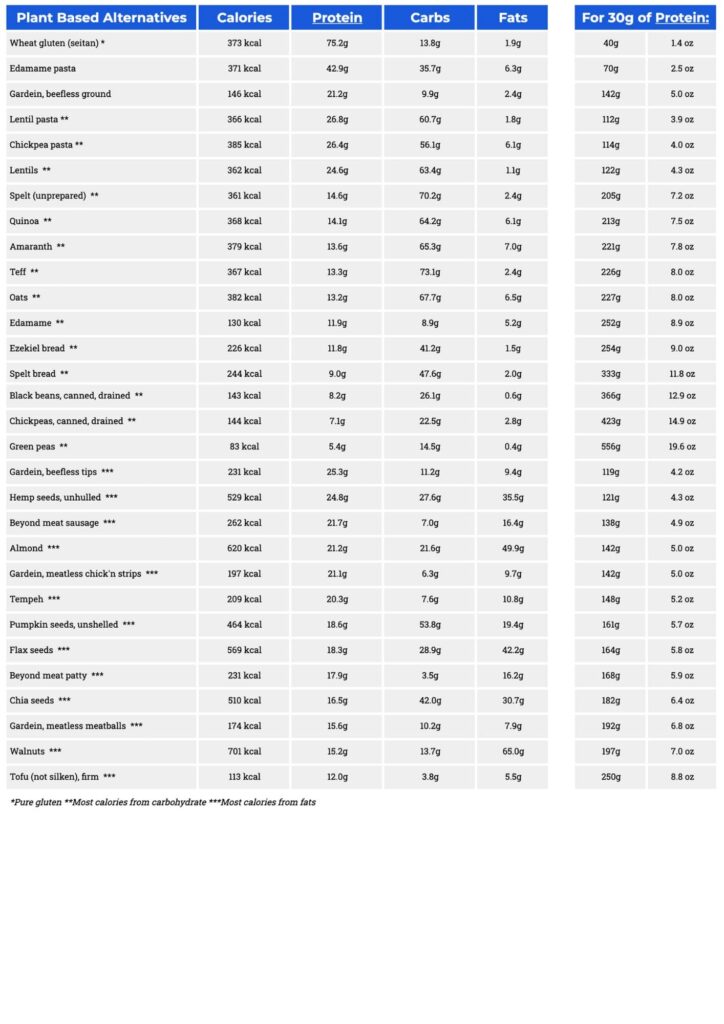
Why is protein important?
- Protein is involved in countless reactions and processes throughout the body.
- Your body is always breaking down and rebuilding proteins.
- Protein overfeeding studies suggest that it seems to be near impossible to store protein as body fat, even in a calorie surplus.
- Protein helps you build and maintain muscle mass.
- It’s the most satiating macronutrient, meaning it keeps you fuller longer.
- With a whopping 20-30%, protein has the highest thermic effect of all macronutrients.
How much protein do I need per day?
What are high protein foods?
- Land animal sources – These high quality protein sources are complete, and well-absorbed by the body. Both lean (low fat) and higher-fat cuts of meat are essential parts of a healthy diet.
- Sea animal sources – Fish and other sea animals like shrimps and lobster. These high quality sources include some of the leanest, or ‘pure’ protein sources out there. Also the fattier options, like salmon, are incredibly healthy for you – get those omega 3’s!
- Other animal sources – Eggs and dairy products (e.g. skyr, cottage cheese) are lower in protein per 100g, but are among the highest quality protein sources you’ll find.
- Supplements – First, make sure most of your protein intake comes from minimally-processed, REAL foods. Then, feel free to supplement your diet with a daily scoop of quality whey, casein, or combined plant based protein powder. Especially if you’re vegetarian/vegan, or someone with a protein target of about 160g+, I’d say go with 2 scoops a day.
- Protein-rich alternatives – These include your plant based options. Although these foods are really medium-protein carb and/or fat sources, they can work as great alternatives! Typically these foods aren’t considered ‘complete’ proteins. However if you hit your intake and eat a varied diet, you’ll likely be fine.
'What high protein foods to eat for fat loss and muscle gain - The Definitive Protein Cheat Sheet'
What high protein foods are good for me?
- Is it a complete protein source?
-
- Do I have any sensitivities/allergies to this food?
-
- Do I digest it well? (Especially important with dairy)
-
- Do I go with a lean/fattier option? (Check both calories and protein contents)
-
- Do I enjoy eating this food? (Super important!)
-
- Does it align with my values? (Think veganism, certain religions, etc.)
HOW to Hit Your Proteins
Knowing what to eat to hit your proteins and why it’s so important is one thing, but I can imagine you also want to know how.
Hitting your proteins isn’t difficult, it’s just that most times people don’t plan well.
9/10 times you go about your day, and collect some protein here and there, without much intention. By the end of the day, you’re then left with 100g+ of protein to catch up on, which of course is hard to do.
(Your digestion also won’t be too happy either.)
We could get into the ‘best hacks’ or ‘top protein foods’ for catching up on your protein intake at the end of the day… But as you already know – if you’ve been spending some time on the blog – we want to be PRO-active here, not reactive.
You see, you don’t just hit your daily protein target. Instead you make sure to get enough protein with every meal.
That said, here’s how to effortlessly hit your protein:
Step 1) As you learned above, first multiply your goal weight by 1.8g – 2.2g/kg (0.8-1g/lbs) of your goal weight.
Step 2) Then, decide how many meals you want to have. Most of our online nutrition coaching clients go with about 4-5 meals a day.
Step 3) Next, divide your daily protein goal by the amount of meals you want to eat.
Step 4) Per meal, choose which protein you want to have. Most people need about 30g per meal to hit their daily intake. Of course, you do need to tweak the amounts depending on your optimal protein goal if you need more.
… Now you know why The Definitive Protein Cheat Sheet includes a column that shows you exactly how much of a food to eat to hit 30g of protein!
In-between-step) If you track your food in an app like Cronometer, great! Then go ahead and pre-log your proteins. Pro-tip: while you’re at it, you might as well log the rest of what you’re planning to eat too 😉
Step 5) Finally, all you need to do is actually eat your proteins!
Follow these steps, and you’ll never NOT hit your proteins anymore.
You see, it’s really not that difficult.
It just requires some planning!
Thank you for reading along, and don’t forget to download my e-book below if you want to keep learning about all things health, fitness, and nutrition!
- Antonio, J., Ellerbroek, A., Silver, T. et al. A high protein diet (3.4 g/kg/d) combined with a heavy resistance training program improves body composition in healthy trained men and women – a follow-up investigation. J Int Soc Sports Nutr 12, 39 (2015). https://doi.org/10.1186/s12970-015-0100-0
- Bray, George A et al. “Effect of protein overfeeding on energy expenditure measured in a metabolic chamber.” The American journal of clinical nutrition vol. 101,3 (2015): 496-505. doi:10.3945/ajcn.114.091769
- Leaf, Alex, and Jose Antonio. “The Effects of Overfeeding on Body Composition: The Role of Macronutrient Composition – A Narrative Review.” International journal of exercise science vol. 10,8 1275-1296. 1 Dec. 2017
- Antonio, J., Peacock, C.A., Ellerbroek, A. et al. The effects of consuming a high protein diet (4.4 g/kg/d) on body composition in resistance-trained individuals. J Int Soc Sports Nutr 11, 19 (2014). https://doi.org/10.1186/1550-2783-11-19


